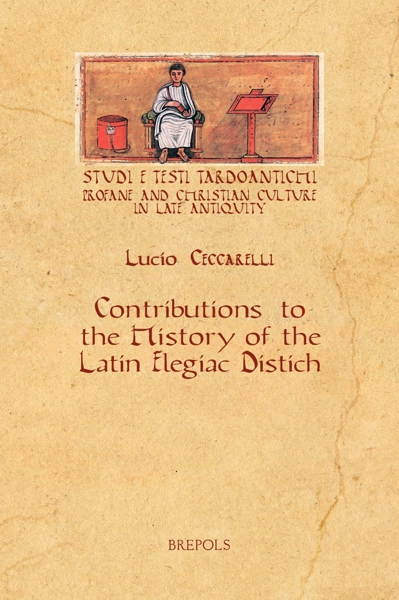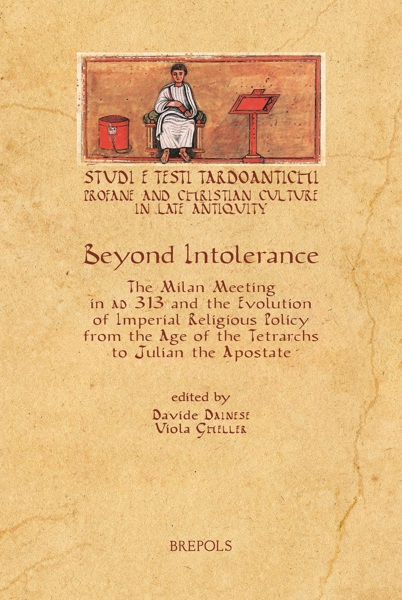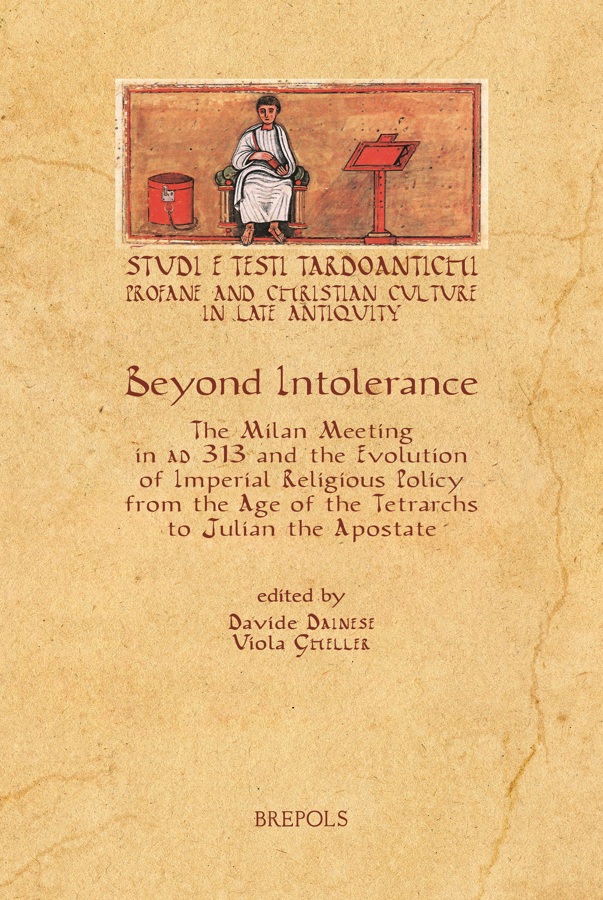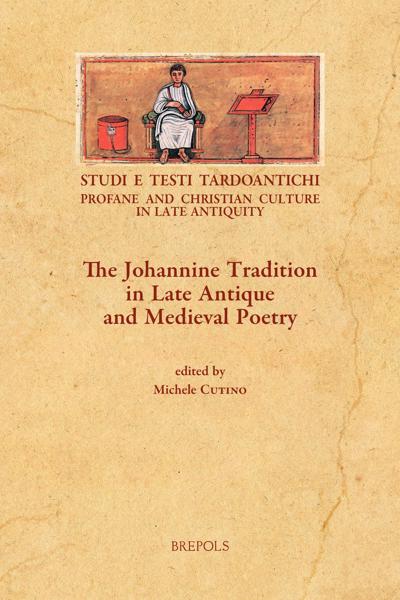
Beyond Intolerance
The Milan Meeting in AD 313 and the Evolution of Imperial Religious Policy from the Age of the Tetrarchs to Julian the Apostate
Davide Dainese, Viola Gheller (eds)
- Pages: 307 p.
- Size:156 x 234 mm
- Language(s):English, Italian
- Publication Year:2019
- € 110,00 EXCL. VAT RETAIL PRICE
- ISBN: 978-2-503-57449-3
- Paperback
- Available
- € 110,00 EXCL. VAT RETAIL PRICE
- ISBN: 978-2-503-58403-4
- E-book
- Available
A multidisciplinary collection of studies on the historical meaning of Constantine and Licinius' Milan meeting in AD 313
“Es sind diese Argumentationen und Befunde im Detail sowie die immer vorsichtig formulierten Thesen zu den offenen Fragen, die den Band zu einem durchaus gewichtigen Beitrag für die Konstantinsforschung machen.” (Heinrich Schlange-Schöningen, in Historische Zeitschrift, 311, 2020, p. 732)
Viola Gheller holds a PhD from the University of Trento. Her research mainly focuses on the ties between religious belonging and socio-political phenomena, with a particular interest in the processes leading to the creation of collective identities. She is now collaborating with the chair of Roman History at the University of Urbino.
Davide Dainese holds a PhD from Padua University. He is Assistant Professor at the University of Bologna and member of the Bologna Foundation for Religious Sciences John XXIII. His research covers many aspects throughout the history of Christianity (history of church councils, history of the relationships between Church and State), but his main scientific interests are related to Late Antiquity (Alexandrian Tradition and the myth of Constantine the Great).
313 AD is generally considered a "turning point" in religious and political Western history. The meeting of Constantine and Licinius in Milan and the subsequent "edict" not only gave Christians the right to assemble and practice their faith, but opened the way to the Christianisation of Roman imperial structures and, finally, to the declaration of Christianity as the only religion allowed in the Roman Empire.
The papers collected in this volume tackle this complex historical phase from a number of perspectives (from Church history and theology to political and juridical history), following a strongly multidisciplinary approach. The chronological schope, stretching from the decades preceding the meeting of 313 to the reign of Julian the Apostate, sheds light on the cultural, political and juridical premises of Constantine and Licinius's decisions as well as the way those premises affected a number of aspects of everyday life within the Empire up to Julian's pagan "restoration" and afterward.
Foreword (Viola Gheller)
Religious Intolerance in the Fourth-century AD Melting Pot: An Introduction (Ulrico Agnati)
The Edict of Serdica and the Meeting in Milan as Reflected in the Legislation Promoted by Maximinus Daza: Notes for a Study on his Religious Policy through the Legislation (Valerio Massimo Minale)
Identità e funzioni dello hiereus nel 'religious revival' di Massimino Daia e di Giuliano Imperatore (Daniela Borrelli)
Intolerance at the Court of Constantine? The Case of Fausta and Helena (Marco Rocco)
Ideological Premises and Legal Strategies in the 'Turning Point' in Constantine's Attitude towards Christian Communities (Michele Giagnorio)
Bishops and the Emperor within the Framework of Late Antiquity. The Council of Nicaea in De vita Constantini (Davide Dainese)
Considerazioni sulla proprietà ecclesiastica: dalle origini del Cristianesimo a Costantino (Dario Annunziata)
Constantine and Slavery (Alessia Spina)
Constantine's De Iudaeis Statutes. The Jews and the Roman Empire from Diocletian to Constantine (Francesca Zanetti)
List of Abbreviations
Indexes
- Ancient Authors and Texts
- Biblical Texts
- Juridical Sources
- Epigraphic and Papyrological Sources
The Authors




